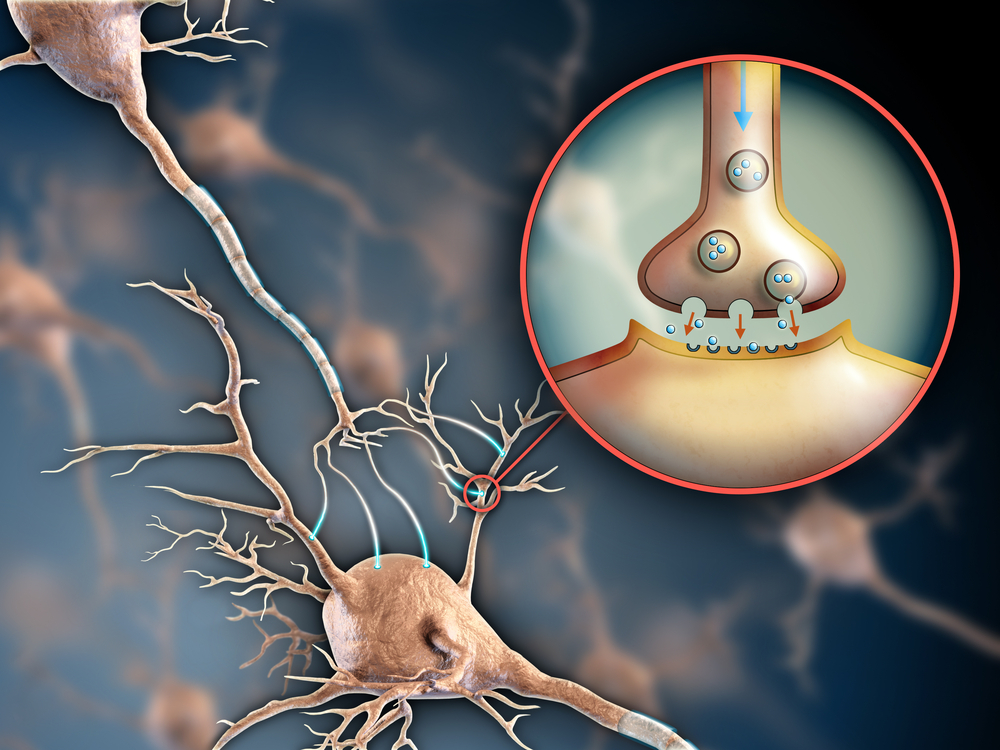|
Neurotransmitter levels can affect your mood, but did you know that other chemical processes in your body can have a also profound affect on how you feel? Quick Bite (for those of you with little time for details)
Long Lunch (read on if you would like to know more) Behind the scenes in our brain Our thoughts, feelings and reactions are all the result of a mass of brain cells (neurons) communicating information. Brain cells don’t touch, they transmit information chemically and electrically.
The three main neurotransmitters that effect mood are also effected by methylation.
Mind the gap Simply put, in order for signal transmission to run smoothly we need:
About Methylation Methlylation is the process of adding or donating methyl groups from one chemical, molecule or protein to another. It is a long and detailed chain of chemical events that is happening over and over inside you as you read this article. The methylation pathway is usually represented by a series of cogs and wheels creating interconnected cycles. Each wheel uses different enzymes and nutrients and each cog is dependent on the wheel before it operating effectively. Amongst many, many other things the methylation cycle governs gene expression. A little Snippet about SNPs Single Nucleotide polymorphism’s (SNPs) are little genetic abnormalities. They are very common and most don’t cause much, if any, trouble at all. In fact, most of us have up to 1000 SNPs (little genetic mutations) and we get along just fine. However, if the SNPs are in the methyl cycle, then depending on how many and in which area of the cycle, we can make too much or too little methyl. Either of these can cause problems at the pointy end of us – our brain.
Methylation works well for most Don’t be alarmed. Most people (around 70%) have no great problem in their methylation cycles. However, about 8% of the population over-methylate, and about 22% under-methylate. The hit-home message here is that of the 30% of people who have methylation issues, 70% will experience some form of psychological problem as a result. This works out to be around 21% overall for whom methylation issues could be messing with their mental well-being. Symptoms of methylation issuesSymptoms are not diagnostic or present in all, I have met highly motivated and inwardly competitive over methylators, and undermethylators with dry mouths and not hint of allergy. These are lists where one might only tick a few yet still have methylation issues, or may tick several boxes only to discover their methylation is just fine.
Treatment I won’t go into treatment in too much detail, because you really need to see a specially trained health practitioner for treatment. However, having come this far I do feel I need to tell you a couple of things. One is that what is good for an undermethylator is NOT good for an overmethylator. Undermethylators usually do okay on SSRIs and SAMe, whereas overmethylators will not. Overmethylators need more folate (and niacin) to bind the excess methyl groups, undermethylators often find they feel worse on folate or folic acid. Please see an appropriately trained Health Practitioner to treat any issues that you think you may have. You don’t want to incorrectly mess with the methylation cycle!  Histamine Hints at Methylation Status There are other ways that more accurately measure methylation, but the most commonly used, “quick and dirty”, measure of methylation status - measuring whole blood histamine levels. If histamine is within normal range (0.45- 0.5. or 48-60), it can indicate methylation is working okay. A high histamine level (>0.6 or 70) could mean you are an undermethylator and low histamine level (<0.35 or 48) could indicate you are an overmethylator. *If you are getting a whole blood histamine test to assess methylation remember not to take any anti-histamine medications for 10 days prior to testing as these will mess up the results. Last mouthful
As you may have gleaned, there is always a balancing act going on between all the various aspect of physiological functioning. The effects of too much or too little methylation on neurotransmitter levels may not show up for a long time, if at all. OR, depending on what else is going on in the person’s life, body, genetics, etc. the effects of faulty methylation may manifest in a mood disorder or significant mental illness. As always the effect of life events, personal history, stress and personality can not be separated from current mental state. References William J Walsh, Nutrient Power Dr Menash, Presentation http://www.mensahmedical.com/resourcecenter.html Dr. A.T. Lewis, http://www.integrativepediatricsofohio.com Posts regarding integrative medicine, human behaviour, psychotherapy, gestalt therapy, bio-chemical disorders; pyrrole, methylation, copper and zinc imbalances, child behaviour, family relationships, parenting.
0 Comments
Leave a Reply. |
AuthorClarissa Mosley Categories
All
Archives
November 2022
|





 RSS Feed
RSS Feed



